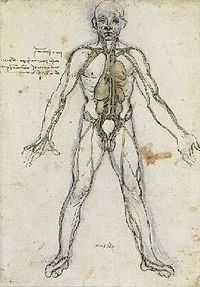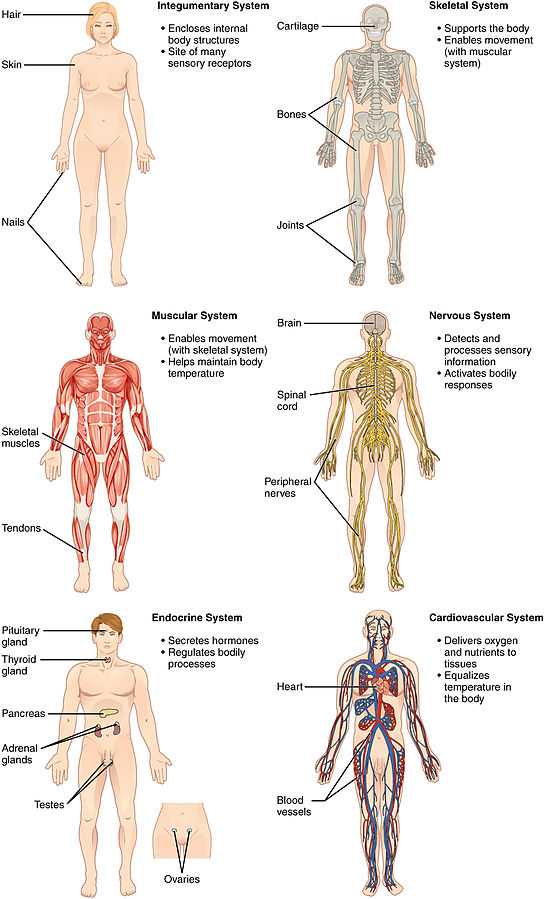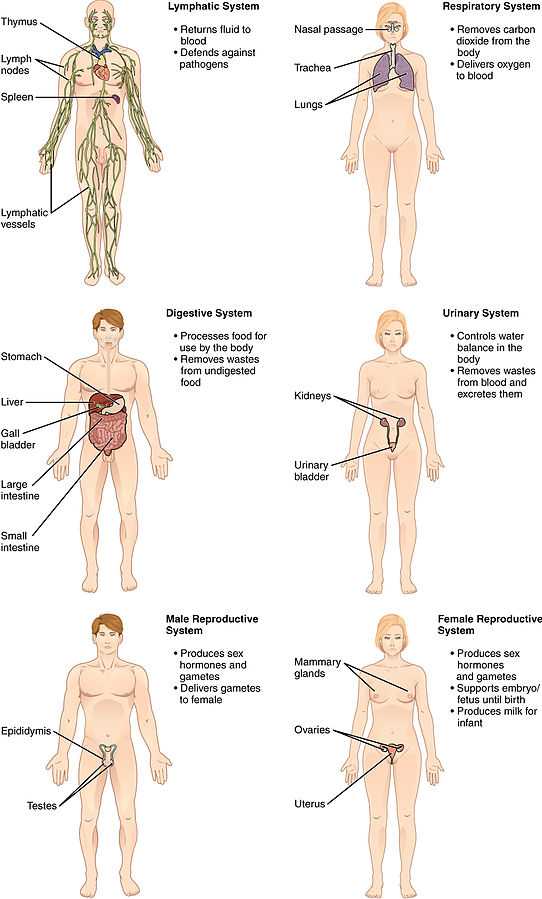List of systems of the human body
 |
| Part of a series of |
| Lists of human anatomical features |
|---|
|
See also
|
The major systems of the human body are as follows (names of auxiliary/supporting systems in italics):

- Clockwise from top left: the integumentary
- skeletal
- nervous
- cardiovascular
- endocrine and muscular systems.
- Integumentary system
- Skin, hair, nails, sweat and other exocrine glands.
- Nervous system
- Collects and processes information from the senses via nerves and the brain and tells the muscles to contract to cause physical actions.
- Cardiovascular system
- Circulates blood around the body via the heart, arteries and veins, delivering oxygen and nutrients to organs and cells and carrying their waste products away.
- Endocrine system
- Provides chemical communications within the body using hormones.
- Muscular system
- Enables the body to move using muscles.

- Clockwise from top left: the lymphatic
- respiratory
- urinary
- reproductive (female
- male) and digestive systems.
- Lymphatic system
- Supplies and drains lymph fluid in support of the cardiovascular and immune systems.
- Respiratory system
- The lungs and the trachea that bring air into the body.
- Urinary system
- Part of the excretory system.
- Excretory system
- Eliminates waste from the body.
- Reproductive system
- The sex organs required for the production of offspring.
- Digestive system
- Mechanical and chemical processes that provide nutrients via the mouth, esophagus, stomach and intestines.
- Immune system
- Defends the body against disease-causing agents.